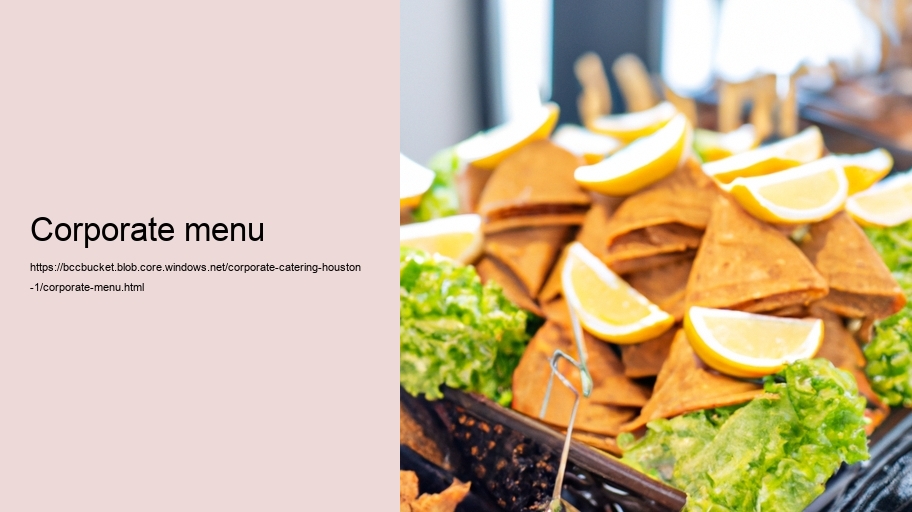Title: The Corporate Menu: A Delicate Balance of Choice and Representation
In the fast-paced whirlwind of corporate culture, every detail counts. From boardroom presentations to the subtle nuances of corporate hospitality, each element is meticulously curated to reflect a company's ethos, brand identity, and respect for its employees and guests. Among these elements lies an often-overlooked yet significant aspect — the corporate menu.
The term "corporate menu" brings to mind an array of culinary offerings tailored to suit formal business meetings, events, conferences, or everyday employee dining within a corporation. This is not merely about feeding people; it's about conveying a message through food while accommodating dietary preferences and cultural sensitivities.
When crafting a corporate menu, chefs and event planners are akin to artists with a global palette at their disposal. They must consider local tastes alongside international flavors to ensure that every palate finds solace in the spread before them. The challenge lies not only in pleasing taste buds but also in aligning the meal with the company's image.
A well-thought-out corporate menu serves as a subtle ambassador for a company's values. An organization that emphasizes sustainability might feature organic produce sourced from local farms, highlighting their commitment to environmental stewardship. A company priding itself on innovation could showcase modern gastronomic techniques or fusion dishes that spark conversation and curiosity among diners.
Diversity and inclusion also play pivotal roles in assembling these menus. In our globalized world where workplaces are melting pots of cultures and beliefs, it's vital that everyone feels acknowledged at the dining table. Offering vegetarian, vegan, halal, kosher options or allergen-friendly choices isn't just courteous — it demonstrates an understanding of individual needs and promotes inclusivity.
However impressive a menu may be in variety and sophistication, one must never underestimate the power of comfort food — dishes that evoke a sense of familiarity and warmth can bridge gaps between colleagues from diverse backgrounds. A simple pasta dish or classic dessert can often do more for team bonding than the most exotic fare.
Moreover, portion sizes and serving methods warrant careful consideration when designing these menus. Buffet-style service encourages interaction among attendees but might be less suitable for formal settings where plated meals underscore elegance and orderliness. Conversely, finger foods facilitate networking by allowing guests to mingle freely without being tethered to a sit-down meal.
Behind every successful corporate menu lies attention to nutritional balance as well — providing wholesome options alongside indulgent ones ensures that health-conscious individuals have ample choice without feeling sidelined amidst richer offerings.
Ultimately, curating such menus requires foresight into logistical aspects too — from kitchen capabilities at venues to serving staff availability; all must synchronize seamlessly for impeccable culinary delivery during corporate engagements.
In conclusion,the essence of an effective corporate menu extends beyond sustenance; it is about creating experiences that resonate with individuals' tastes while embodying organizational principles.It acts as an unspoken dialogue between host & guest,a narrative woven through courses that reveals much about how companies perceive themselves&their esteemed counterparts.An adeptly constructed menu thus becomes more than just food—it transforms into a strategic tool fostering communication,collaboration,and camaraderie within professional realms.A harmonious blend of practicality,presentation,& palatability renders it not just appealing,but also emblematic—much like any other facet carefully crafted by corporations seeking excellence in all endeavors.
